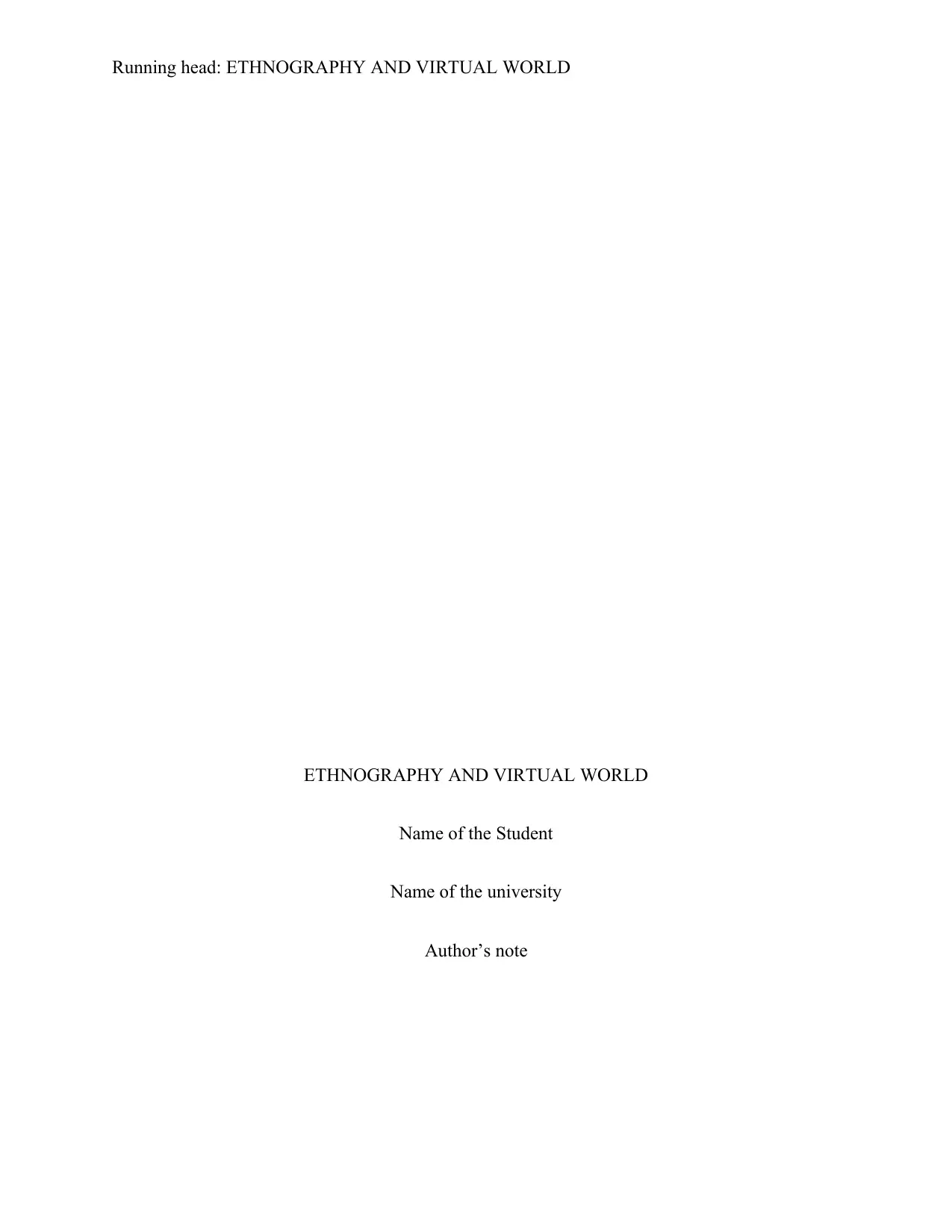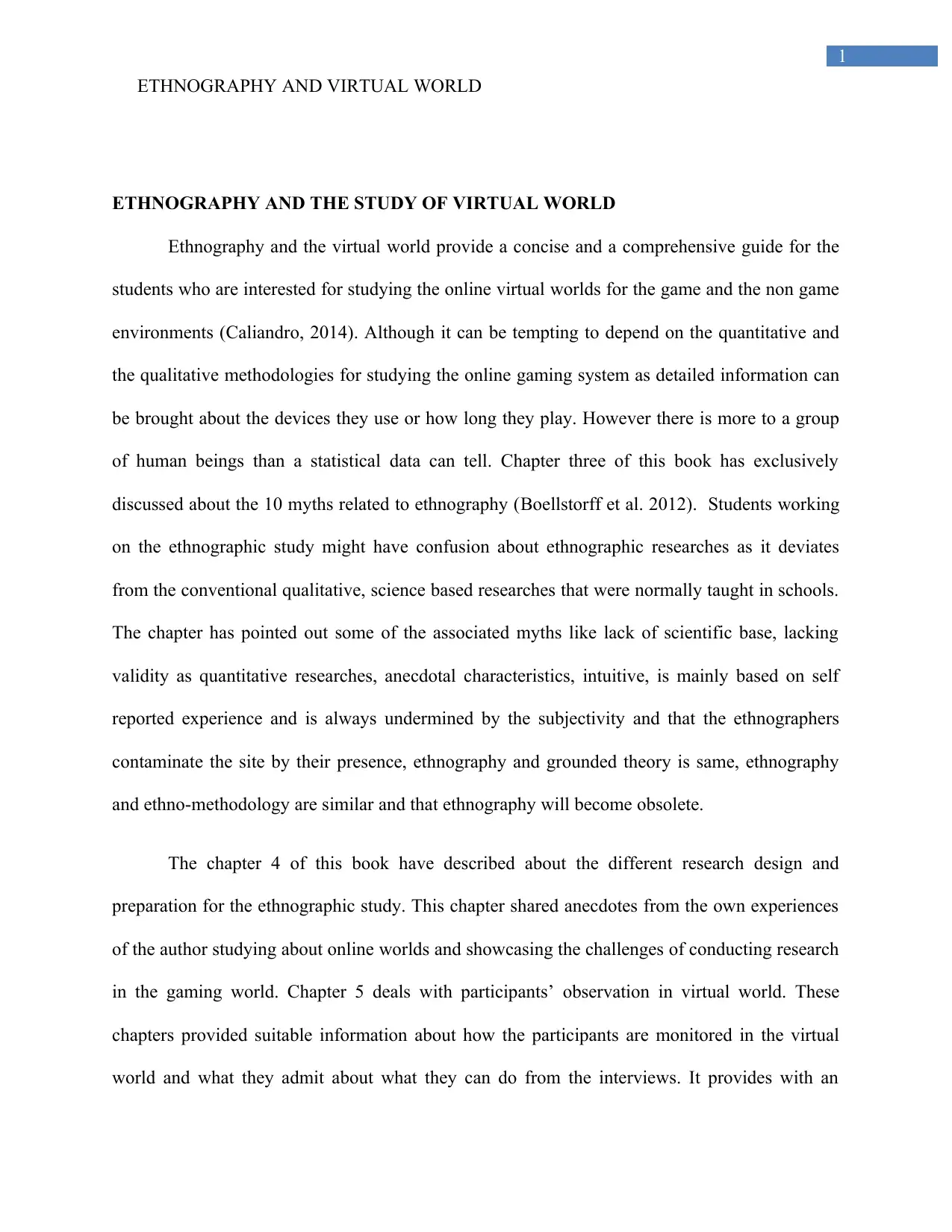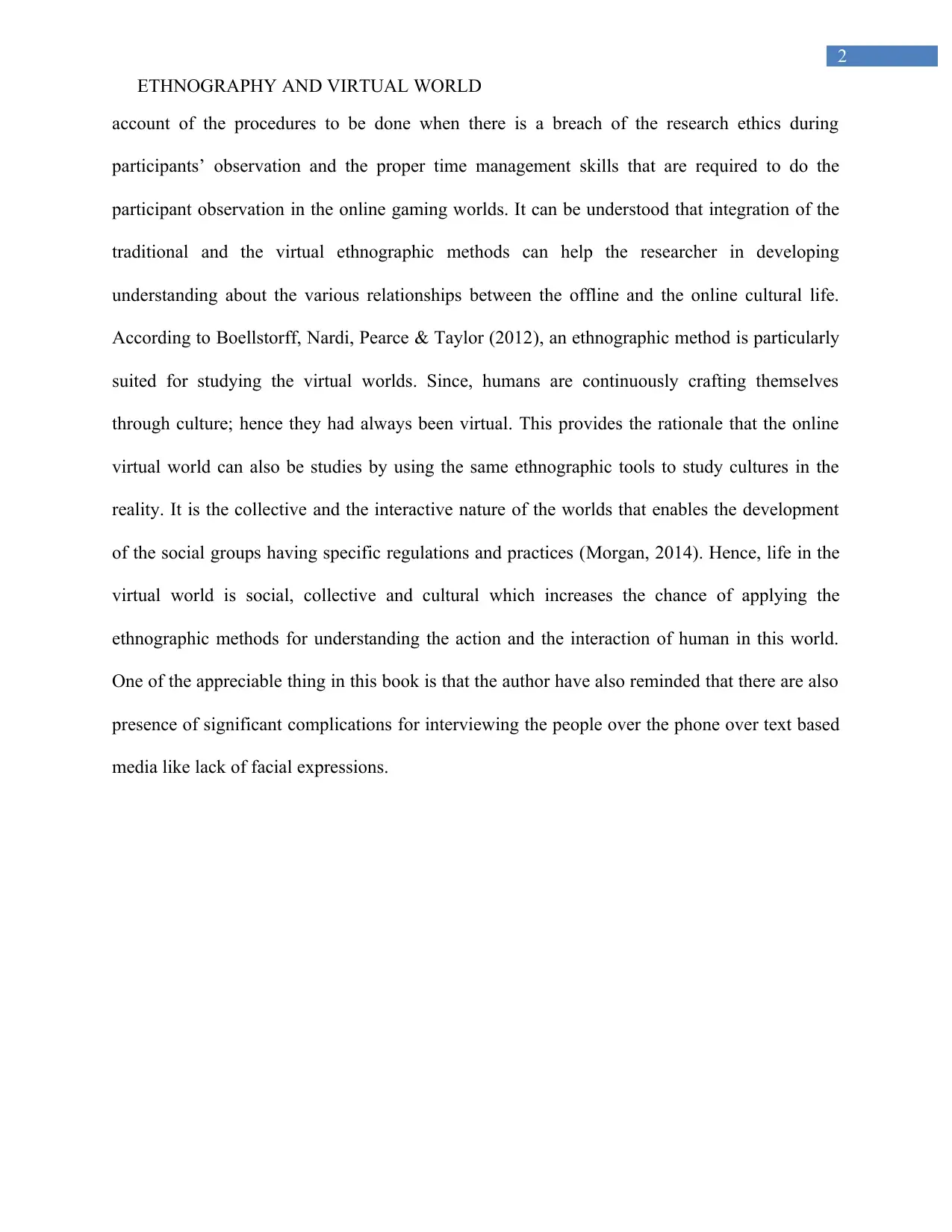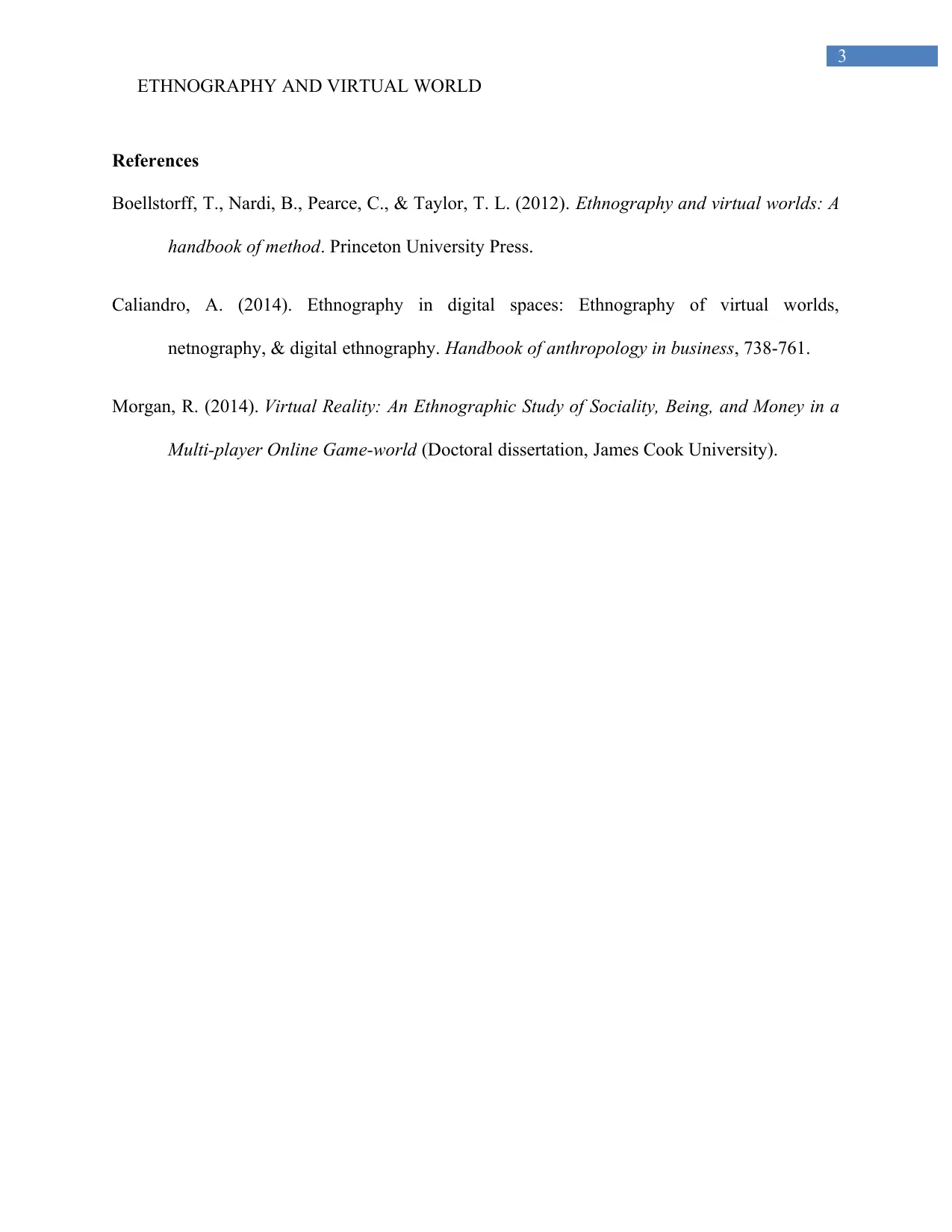Ethnography and Virtual Worlds: Report on Online Ethnographic Study
VerifiedAdded on 2023/06/04
|4
|700
|230
Report
AI Summary
This report provides an overview of the study of ethnography in virtual worlds, focusing on the application of ethnographic methods to online environments, particularly in gaming and non-gaming contexts. It references key literature, including Boellstorff et al. (2012) and Caliandro (2014), and discusses the challenges and opportunities of conducting ethnographic research in virtual spaces. The report highlights the importance of understanding online cultures and social interactions, emphasizing the use of participant observation and the integration of traditional and virtual methods. It addresses common myths about ethnography, research design, and ethical considerations, and it also touches on the complexities of online communication and interviewing techniques. The report concludes by emphasizing the significance of studying virtual worlds using ethnographic tools to study cultures and the social groups formed within these environments.
1 out of 4











![[object Object]](/_next/static/media/star-bottom.7253800d.svg)